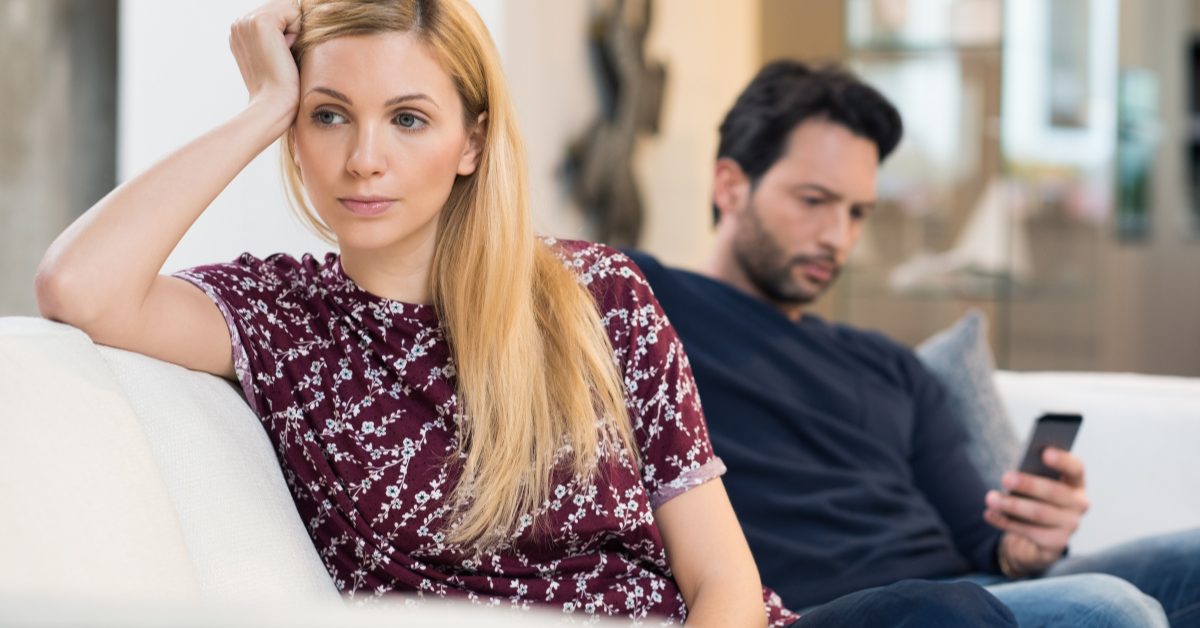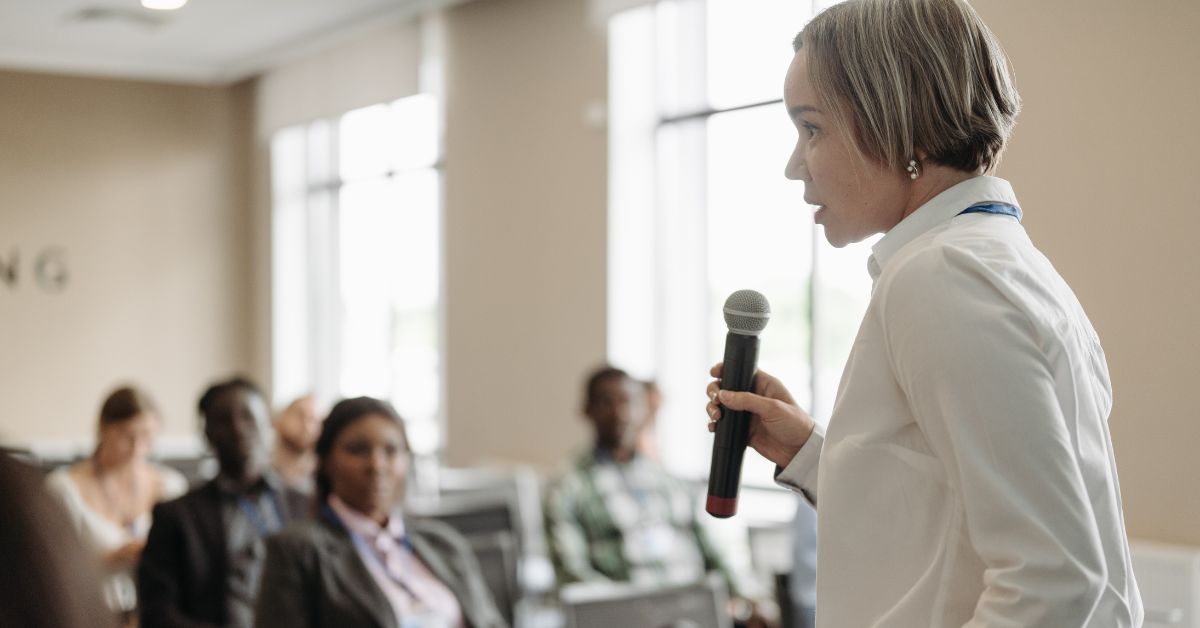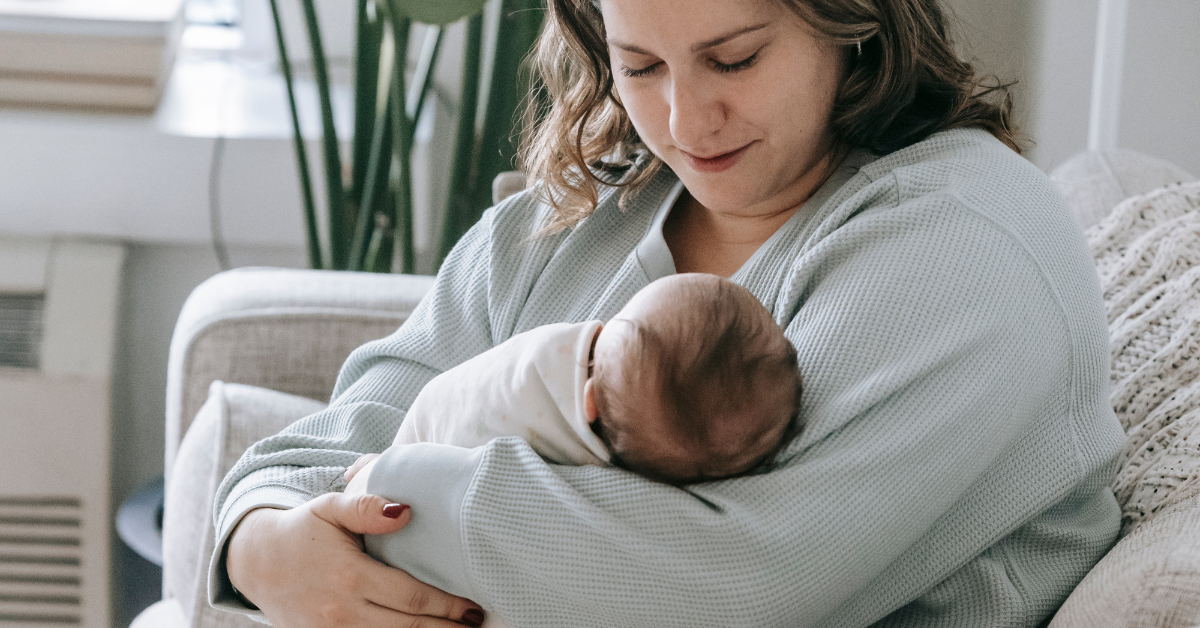91. Harm OCD in Pregnancy Sent me to the ER with author Amber Williams Van Zuyen
Amber Williams Van Zuyen, author of Pregnant and Drowning tells about her struggle with harm OCD during her pregnancy.
Episode Highlights:
- How and when did her OCD symptoms start
- What happened the first time she sought help for her OCD
- How her OCD symptoms intensified during her pregnancy and after giving birth
- What helped her during her process of overcoming her OCD
- How God helped her get through her struggles
- Amber’s book, Drowning and Pregnant
Episode Summary:
Welcome to Episode 91 of Christian Faith and OCD. In this episode, I’m thrilled to share an insightful conversation with Amber Van Zuyen, the author of Pregnant and Drowning. Amber’s story is incredibly relatable for those who have struggled with anxiety and OCD.
Amber opens up about her personal journey with OCD, which began in childhood with compulsive rituals and obsessive fears. She recalls avoiding stepping on lines and constantly checking for lice. Her symptoms worsened in her twenties, especially after experiencing ocular migraines, which she feared were symptoms of a serious illness.
Amber’s story resonates deeply with anyone who has faced similar challenges. She describes her struggles with health anxiety, driven by fears related to her grandmother’s battle with MS and her own obsessive thoughts about having a serious disease.
Throughout her journey, Amber grapples with the stigma around mental health and the misconceptions within faith communities.
Amber’s reflections offer a poignant reminder that mental health issues are real and deserve compassion and understanding. Her story is a testament to the courage it takes to confront and manage these challenges while maintaining faith and hope.
Tune in to hear more about Amber’s journey and the insights she offers for those struggling with similar experiences.
Related Links and Resources:
Amber’s book: Pregnant & Drowning
Explore Related Episodes:
Transcript
Welcome to Christian Faith and OCD episode 91. If you’ve been listening to the podcast for a little while, you know that we love to tell personal stories of people who have struggled with anxiety and OCD. These are so important because they are relatable to other people who often feel so alone, and I think some of you are really going to resonate.
If you’ve ever experienced any type of harm OCD thoughts, you’re really going to resonate with our guest today. Here is my interview with the author of Pregnant and Drowning, Amber Van Zuyen.
Amber, welcome to the show. It’s good to have you today.
Amber: Thanks for having me. I’m excited to be here.
Carrie: You have a really unique personal story about anxiety and OCD and how that’s impacted you and your life, especially in terms of being pregnant and having your son. Take us back a little bit earlier to when you first started experiencing anxiety or OCD symptoms.
Amber: Well, looking back, I can pinpoint when I was 24 when it heightened and got to its worst point, but in early childhood, I would do things like, I’d be in the grocery store with my mom and I didn’t want to step on the lines on the squares because I believe something bad was going to happen or I just had to make sure that I did that so nothing would happen to me, or there was a little girl who had lice in class next to me and I obsessed about constantly having lice and I would go home and have my mom check constantly and it never stopped. It was always just, check again, check again maybe that’s kind of where I noticed my OCD in my earlier days. And then when I was in high school, I got obsessed with makeup and I always felt ugly, I had to cover that up during that time in my life, I would go to the bathroom during lunch periods and take it all off and then re-put it all back on just because I didn’t want anyone to see me. Looking back, those were things where my obsessive compulsive was kind of taking over. But when I was about 24, I had this really scary thing happen with my vision.
I ended up having something called ocular migraines which affected only one eye. I thought I was having a stroke, and my grandmother also suffered from MS terribly early on in my life, I saw her in a bad state, and that was also another concern of mine. So I was kind of always having obsessive thoughts about getting diagnosed with something, constantly reading things, self-diagnosing that triggered health anxiety for me.
I went to the doctor and he told me it was ocular migraines, that there’s nothing to worry about, but I also was concerned about MS too because my grandmother had it, and I was just so terrified and it just played over and over in my head that I was basically already living with a disease that I didn’t even have to the point where I didn’t wanna go out of the house.
I was obsessing with medical books, reading symptoms over and over again, and actually convincing my body that I was having those symptom. This went on for about a month, and I went to the doctor and they prescribed me medication, and I refused to take it for about a month, but I eventually did, and I slowly got better I never completely got over it, but I learned how to deal with it differently.
Carrie: Did they recognize the OCD at that time?
Amber: No, they told me I had anxiety, but looking back, I definitely in the mind it’s repeat, repeat, repeat. It was really destroying my life because I obsessed about it so much as I was living at 24 7 but I eventually got on medication and it got better. And then it was one of those things where I’ve always felt guilty about it because it’s like a lack of faith I feel in a sense, but I do feel like it’s an imbalance that I’ve struggled with and that I truly need medication for it. There have been points in my life where I’ve been off of it and then on it again, and then, Recently I’ve had a trigger because I got off a medication and I was triggered again with medical stuff because of stories Christina Applegate just came out with MS and it triggered that time in my life again but with that said about MS, I see a lot of people doing wonderful with it.
My grandma just got diagnosed at such a weird time she didn’t get diagnosed for with it for 10 years people said she was crazy. She went to doctors and they told my grandpa, you know, your wife’s crazy you need to lock her up in a mental institution but really she was really sick with MS they just didn’t recognize it at that time. She got so debilitated and basically, there was nothing that they could do for her she was too deteriorated at that point to help her. A part of me feel so guilty because I see all these people doing so wonderful with it or just having a good attitude with it and that has been a struggle for me, I feel guilt.
Carrie: Going back to the piece about faith, because I think a lot of people have that wrestling that struggles with anxiety or OCD, well, maybe this is a faith issue, “I don’t have enough faith in God kind of flesh that out a little bit more for you was, I don’t have enough faith, if I do get MS, that God’s going to take care of me and I’m going to be okay.”
Amber: Yes to me, I felt so bad because here I am creating these things in my own head when there are people out there suffering with it and doing good with it because the most courageous people that I know, my brother-in-law’s a paraplegic and he’s just a testimony.
Just such an attitude and I just think God, what is wrong with me? Why am I like this? Is it a lack of faith, but really it’s anxiety and OCD, and it’s truly a disorder? And I had to come to terms with accepting that because I know now going through several years, I’m almost 40 and dealing with it, that it is an actual disorder.
When I’m on medication, I can control it and I can think clearly, it’s almost a bunch of trash jumbled up in your head and then it gets cleared away and you could see clearly without the medication I couldn’t see clearly.
Carrie: I think it’s really hard for anybody to accept that they have an issue, whether it’s physical or emotional. There is a sense of grief and loss of saying, okay yes, I am struggling with OCD because it wasn’t something that you wanted, it wasn’t something that you brought upon yourself it just, it happens, and there’s probably genetic and environmental factors that contribute to all of that most mental health conditions. So that piece of just learning the acceptance is hard.
Amber: It is, and a lot of people are just, oh, get over it they don’t understand so there’s just this stigma that anxiety isn’t real, your OCD is just something that you are making up. You get a lot of that from people that don’t understand it, and I think that’s where a lot of the guilt comes in is people just throw it to the wayside.
This isn’t a real problem, this is just a you problem, but anxiety has a face just like diabetes or anything else does, and it’s an actual disorder some people need medication for it, some don’t, I tend to relapse when I’m not on medication.
Carrie: Tell us about that in terms of maybe responses from people in your faith community when they found out that you were struggling.
Amber: Well, I had a really interesting experience while I was pregnant, I was really struggling with really dark, violent thoughts, and I was thinking these thoughts were my thoughts and I was struggling so much my mom didn’t know what to do. She made an appointment with a Christian counselor at her church, and I went, I sat down with her. She was an older woman, and I began to tell her, I’m struggling with these thoughts I’m getting really depressed, I don’t know what to do. And she looked at me in the face and said, you don’t have real problems, my daughter has real problems, my daughter almost died giving birth, you don’t have real problems. And I just couldn’t even believe that she had gone there and said that, because I’m already so fragile she could have pushed me to, I don’t wanna say suicide, but there were moments during my pregnancy that I questioned those things. Without my family I could have done that, which is her saying that, and it was just so shocking coming from a Christian counselor.
Carrie: That’s really unfortunate that happened it sounds sometimes counselors can have an internal reaction to things that people tell them, and if we’re not in check with those experiences that happen within ourselves, we can do damage. And so it sounds she had some kind of, we call it counter transference reaction towards you as a pregnant woman and dealing with things. And clearly it sounds like she was not up to speed on OCD or what those symptoms are.
Amber: Yes. She definitely was not qualified for at least someone with my condition going on.
Carrie: When did you get that diagnosis of OCD? Was it when you were pregnant? Did someone tell you like, “Hey, this is harm OCD, these are some classic things and these are intrusions it’s not really you?”
Amber: Probably I was 12 weeks pregnant, these obsessive thoughts started five days after I found out I was pregnant. I’ve always had that health anxiety and I’ve always worried, I wasn’t really sure if I wanted to have children at the time, and I was still married. My mom’s like, oh, when are you gonna have kids?
Everyone’s like, “When are you going to have kids?” I don’t know. I was 33 and I’m like, okay, I guess we’ll try and I got pregnant really fast. It scared me and I was laying on the couch one day, a few days after I found out I was pregnant and I was petting my dog and I had this thought in my head where she trusts me so much, I could just snap her neck and she wouldn’t even know it and it scared me.
I had no want or desire to do that, but I started to think, am I starting to go crazy? Am I going to get postpartum? And then I let this repeat, repeat and it turned into a big monster, and it got to the point where I called my OBGYN, and I said, these are the things that are going on in my head and I don’t know what to do, I’m scared that they could happen, not that I want them to happen, but they could and she told me, well, thoughts turn into plans, and then things happen.
Carrie: Oh my goodness. Thanks.
Amber: That triggered me so bad that now the thoughts went from my animals to my mother, to my husband to everyone around me is not safe anymore. Any object around the house, I took all the knives out of the house, put them away, I was scared of the knife drawer, I was scared of the cord that goes through your iPod I thought anything could be a weapon. I was talking to my good friend, she’s a nurse, and she was just walking me through all this, and then one night I was lying in bed and I thought I heard a voice say, just do it already but it was really my thoughts but my friend got freaked out and she said, it’s time for you to go get evaluated. I went to the hospital the next day I was so incredibly terrified I thought everyone’s gonna find out, but at least they will shackle me down and I can’t hurt myself, I can’t hurt anyone else, and this baby can have a chance, so I’m gonna go, but I really thought they were going to 50150 me, they didn’t.
Carrie: In terms of involuntarily hospitalize you, that kinda thing?
Amber: Yes they told me that I was suffering from horrible OCD and anxiety, extreme levels of it. I was like O C D interesting, I didn’t really think about that ever being a thing, because you know, when I think of OCD, it’s like locking the door five times or checking. I didn’t do that, but my mom did that I don’t know if it was hereditary. I ended up going to a therapist through my insurance company and I ended up getting on medication while pregnant, and that was a whole other ordeal as well, because I had one doctor tell me he was, I just switched carriers, so I’d gone to a new carrier while I got pregnant.
This is a whole new doctor, and he told me that because I told him I was suffering from anxiety and this was prior to me going to go get evaluated. And I was just kind of seeing what I could do, I tried acupuncture and I was going to try to get a referral cause it was really expensive to go out of pocket every day because I was suffering so bad, because I said antidepressants while pregnant, what do you think about it? And he said it’s equivalent to a mother drinking every day pregnant. And I’m like, what?
I was just shocked well, okay, this isn’t an avenue I can go down this isn’t going to work. I guess I ended up getting put on medication and I had another doctor, a different one after going through the evaluation process, she put me on something, a roll of doses and it turns out that it’s not the stigma that’s attached with taking antidepressants while pregnant. There’s some that are more harmful and then there are others that don’t travel through the placenta quite the others do. And I’ve asked several doctors and they say that it’s a very low-grade risk as far as the baby’s health goes certain ones and the one that I was on in particular, Prozac, was a friendly one for pregnancy.
Carrie: That’s interesting that your first doctor said that because there are all kinds of studies that have also been done on depressed mothers who are pregnant and that can actually cause harm, low birth weights and those types of things.
Depression in itself is not good for pregnancy, but taking an antidepressant sometimes can help, mitigate some of those risks from the depression.
Amber: Yes.
Carrie: Did your baby come out just fine?
Amber: He came out wonderful. I missed one little part of that story when I told my OBGYN my thoughts, she put me on a medication instantly and not a lot of high risk to it. I was terrified I was on that for six weeks, and then they switched me to Prozac, which is a lot better but he came out beautiful, perfect, good birth weight, he was seven pounds, eight ounces.
Carrie: That’s great. Do you feel like that changed the course of the rest of your pregnancy? How far along were you when you got on the medication?
Amber: 11 weeks.
Carrie: You had these symptoms really early and I’m not a doctor, so I don’t know a ton about this, I just know from anecdotal experience that individuals I’ve talked to have struggled with OCD. Some of them, I guess with all the hormones and different things that are going on in your body and pregnancy is somewhat stressful to your body in general, that can increase people’s OCD symptoms.
I don’t know if you’ve talked to other people who’ve had similar experiences or heard or read articles or things like that.
Amber: Actually, I had two girls reach out to me that kind of heard about my story. Their OCD was a little different. One girl was just terrified of throwing up she has this horrible fear of throwing up, and she was obsessively thinking about it during her pregnancy, and it was derailing her from her everyday life.
She couldn’t focus, she couldn’t go to work. I kind of tried to talk to her as much as I could through it, just knowing that she’s not alone, that we’re all in this together, and that we all have different little things, but they’re all kind of in common when it comes down to the core of it. And then there was another girl who suffered horribly with depression and my boss at my job kind of hooked us up and I kind of just texted with her and she ended up getting on medication while pregnant, and that was a big game changer for her too. She didn’t completely get through her OCD depression during pregnancy, but it helped tremendously.
Carrie: That’s great. I think it’s mental health it’s so important to talk about these things while pregnant too and this is kind of close to my heart because I had some mild depression when I was pregnant with my daughter, and I think I struggled so much with like the shoulds. Well, I should be happy because I got pregnant and I was older and had lots of friends and family that had dealt with infertility, and so I put all these kinds of like shoulds on myself. You should be happy and I had this expectation that I was going to still be able to be fit during pregnancy and dealt with some back pain and different things. It was hard I really had to read just things. I guess I say all that to say I want people to know pregnancy is a happy time, but people can still struggle with some pretty significant mental health issues through that experience.
Amber: Yes, I mean when I had my baby, I held him and I didn’t feel anything right after I had him and I’m just thinking, aren’t I supposed to feel all these things? I just felt numb. Before they make you go home they have you watch this video, don’t shake your baby, don’t do this, don’t do that and I just felt, or if you’re feeling these things, come back in it’s one of those postpartum videos. And they’re playing this because they know who I am you know, just like all of these fears and for the longest time after he was born, I would get these bouts of fear changing him. I’d feel I’d lose control over my hands and they would do something to hurt him not that I wanted to, just the fear of it. And I would have to take him to my mom’s and go, just take a breather for a minute, go for a walk, and kind of work through that.
Carrie: I think the things that you’re talking about, one of the reasons OCD goes undiagnosed is because people don’t know what a lot of the symptoms are and that the obsessions can take a variety of different forms.
It sounds like you’ve struggled with your share of harm, OCD obsessions, but also somatic obsessions in terms of your body, and maybe there’s something wrong with me and maybe I’m really ill. Tell us a little bit more about how you got through that dark part in your life spiritually, this is the lowest point I feel like I’m going crazy, I feel there’s something really wrong with me, I don’t know what it is God help me.
Amber: I meditated on the Bible so much, just verse after verse, great glory from harvest I would put him on every night about fear and worry and anxiety, and I just would fall asleep to his messages and it would give me peace and calmness.
That was the only place I found a place where I could take a deep breath and just be like, I’m going to be okay. Another book, which really helped me was Battlefield of the Mind by Joyce Meyer. That just really helped me put into perspective. I can have a thought come into my head, but I don’t have to let it make a home there.
Just that God got me through it I never felt so close to him, but yet so close to the enemy as well I just felt it was a battle for my life. I definitely feel, Yes, I have anxiety and OCD, but there was some massive spiritual warfare I’ve never felt anything like that ever and it’s only by the grace of God that I got through it.
Just prayer, prayer, prayer, talking, I talk to a lot of Christian friends and that’s one thing that I think is a strong suit in me. I don’t have money, but I’m an open book and I tell people I just spill my guts. I think a part of that was a big part of my healing process, just letting it out, letting people know I’m not ok.
Letting them pray for me and I got baptized when I was pregnant was a huge thing for me it was like a rededication. My faith is stronger now than it has ever been, and I’ve never felt closer to God during that time it was wild.
Carrie: Absolutely. That makes a lot of sense. The harder circumstances and his sufferings lead us closer to God and we discover more about who he is through those really hard times in our life. Then you felt led to write this book titled Pregnant and Drowning. Can you tell us about that?
Amber: While I was pregnant and going through all these things, I so desperately wanted something to relate to. I could find little tidbits here and there about women that had suffered from postpartum. Some are a little bit similar to mine, but not a whole lot.
I didn’t find a whole lot on harm OCD when I was going through this, and I don’t know if I wasn’t navigating correctly or how I was searching, but it just seemed so taboo to talk about and I just wanted people to know that you are not your thoughts. One thing that I really struggle with, and this is just strictly my opinion.
When I see a horrible headline where a mother bills her children, I think that is not postpartum in my opinion, that is evil and from the enemy. The devil does all these things to make you think that you’re going crazy and that you’ve got to do these things I’ve never had that desire. When I see that and I see postpartum, I go, I don’t know if can postpartum go that far to where you could harm a child like that.
I don’t know I just wanted to tell my story because I would never do something like that, and I felt like a monster and I was ashamed of it, but I know now that wasn’t me those were just thoughts that I invited in and I just could not get them off of the OCD wheel in my head.
Carrie: I appreciate you being so vulnerable about some of those specific thoughts that you had, because I think a lot of people, even people who come to therapy that I see, it takes a little while before they can even open up and talk about some of the things that are going on in their head because they feel they’re so horrific.
And then if I start talking about it, I’m going to possibly start obsessing about it, it can be really tough for them and I think that other people will be listening to this and find it very relatable of some of the things that they’ve had. I appreciate what you said earlier too, about how you can have a thought come in and it doesn’t have to make its home there, like you don’t have to continue to dwell on it you can notice there’s a separation that we can create. I’m having this thought, but one that’s not a reflection of my character which is so important and then two, it’s a thought. I can separate myself from that and say it’s not the same thing as a desire that doesn’t mean that I want to engage in that.
That’s why we call them intrusive thoughts because they intrude when you think about something that kind of pushes its way in, that doesn’t need to be there. That’s something that a lot of people, especially when they’re first kind of getting to know themselves in OCD that they really struggle with.
They think, Oh because I had this thought about hurting myself, my animal, my kids, whatever that means, somehow there’s some deep-seated secret desire that I want to do that, and that’s not the case so it’s important for people listening to this to know that.
Amber: There’s such a difference and it took me forever to realize that because I thought I don’t want to do these things, but why are they in my head because I won’t let them go I’m giving them value. I’m creating this monster that’s under my bed, and I can’t get rid of it until I can figure out that there’s a difference between a thought and who I am as a person, and that doesn’t reflect me.
Carrie: Your book is about your personal story and some things that were helpful and beneficial to you during that process.
Amber: It starts off in my earlier anxiety and then it moves on to my pregnancy, and there was so much darkness in that time and just the struggle I went through to try to get me in this baby through that journey also, I ended up having another baby and I was on medication the whole time. It was a great pregnancy as far as mental health goes totally opposite.
Carrie: That’s so hopeful too for people to know that they can have a different experience than they did the first time, even if they had difficulty with their mental health.
So you just kind of knew going into the second pregnancy, okay, I know what I’m dealing with I know what thoughts could come up, I have some more tools, skills, or resources to be able to separate myself from those and distract myself and move on. Did you ever get any good therapy in this process to specifically deal with the OCD?
Amber: I went to a couple of meetings. It was kind of far away from where I lived and I should have done the group thing I think it’s helpful. I am interested in joining one now cause I think it’s so important to support each other and to realize you’re not alone and that we can all get through this together, just hearing each other’s testimony, each other’s stories, helping each other through struggles.
I know that for me, I don’t have a lot of friends that struggle with the same things I do. I have one friend that has pretty bad anxiety, so to be able to relate to her is medication and therapy. Just to be like, “Hey, oh gosh, you do that too oh, okay I understand how that feels.” Just knowing that you’re not alone is such a game-changer I think.
Carrie: Amber, you have such a powerful testimony and I appreciate you coming on and sharing this with us, I hope that people will get your book if this is something that they’ve struggled with and so that they can kind of relate and relieve a sense of shame that they may be having over dealing with some of these thoughts.
Amber: Well, thank you so much for having me.








